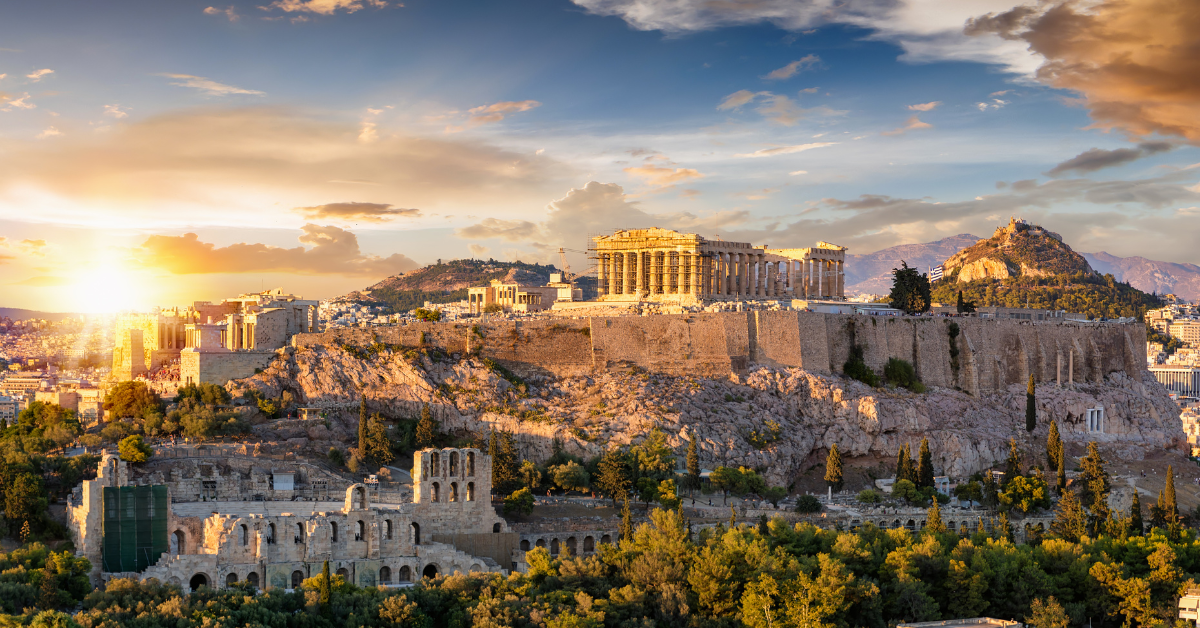Athens, the capital of Greece, is sometimes written in kanji as “雅典”. This notation carries a sense of elegance and intellect, reflecting Athens’ role as a center of ancient civilization and democracy. In Japan, the kanji form offers a literary and refined nuance, shaping how people perceive the city beyond its katakana spelling.
The Kanji Representation of Athens: “雅典”
Origin of the Kanji
When written in kanji, Athens becomes “雅典”. This was not created independently in Japan but spread from Chinese transcription. The character “雅” conveys elegance and refinement, while “典” suggests intellect and scholarship. Together, the two characters reflect the dignified nature of Athens as a city of civilization.
Usage in Japan
In the past, the form “雅典” could be found in newspapers and atlases, but in contemporary Japan, “アテネ” (Athens in katakana) is far more common. Still, “雅典” carries a literary and refined nuance, sometimes used in contexts that emphasize cultural weight.
Historical Images of Athens Held by Japanese People
For most Japanese, Athens strongly evokes the image of the center of ancient civilization. It is the city of philosophers like Socrates and Plato, as well as the birthplace of democracy, often introduced in Japanese education.
Historical Images
| Aspect | Content | Impression in Japan |
|---|---|---|
| Philosophy | Socrates, Plato, Aristotle | Symbol of intellect and inquiry |
| Politics | Birthplace of democracy | City of freedom and equality |
| Architecture | Parthenon Temple, Agora | Monuments of civilization |
Thus, Athens remains for Japanese people a city of learning and liberty.
Impressions of Athens in Culture and the Arts
Athens as a Cradle of the Arts
Athens also stood at the center of art. Sculpture, architecture, and drama flourished there, making it a city widely regarded as the foundation of Western art.
Athens’ Influence on the Arts
| Field | Characteristics of Athens | Impression in Japan |
|---|---|---|
| Sculpture | Pursuit of realism and ideal beauty | Symbol of beauty and harmony |
| Architecture | Doric, Ionic, Corinthian orders | Splendid and sophisticated city culture |
| Theater | Greek tragedy and comedy | Origin of literature and performing arts |
The refined nuance of “雅典” resonates with these cultural backgrounds, emphasizing the city’s intellectual prestige.
Athens as a Stage for Sports
Connection with the Olympics
Athens is recognized worldwide as the birthplace of the modern Olympic Games. The first Olympics were held there in 1896, and the city again hosted the Summer Games in 2004.
Athens and Sports
| Year | Event | Impression in Japan |
|---|---|---|
| 1896 | First modern Olympic Games | City as the origin of sports |
| 2004 | Summer Olympics again | City where tradition and modernity merge |
| Marathon | Rooted in ancient legend | Symbol linking history and athletics |
For the Japanese, Athens is seen as a stage that unites sports and history.
Athens as a Tourist City
The Blend of Ruins and Nature
Athens harmonizes ancient ruins with a modern urban environment. The Aegean Sea and Mediterranean climate captivate many Japanese visitors.
The Food and Hospitality
Greek cuisine, rich in vegetables and olive oil, appeals to Japanese tastes as a healthy diet. Combined with the warm hospitality of the people, Athens is seen as a city of both history and human warmth.
Athens’ Tourist Appeal
| Perspective | Feature | Appeal for Japanese Visitors |
|---|---|---|
| Nature | Aegean landscapes, mild climate | A city to enjoy like a resort |
| History | Parthenon and ruins | A place to experience the roots of civilization |
| Food Culture | Olive oil–based dishes | Healthy and approachable cuisine |
Conclusion
Athens can be written in kanji as “雅典”, a form that embodies the city’s elegance and intellectual dignity. Today, “アテネ” in katakana is the mainstream expression, but the kanji emphasizes the city’s cultural grandeur.
For Japanese people, Athens is simultaneously the center of ancient civilization, the cradle of arts and culture, the origin of modern sports, and a city of tourism and hospitality. With these multifaceted values, Athens continues to hold a special place in the Japanese imagination as both a city of learning and a city of dreams.






